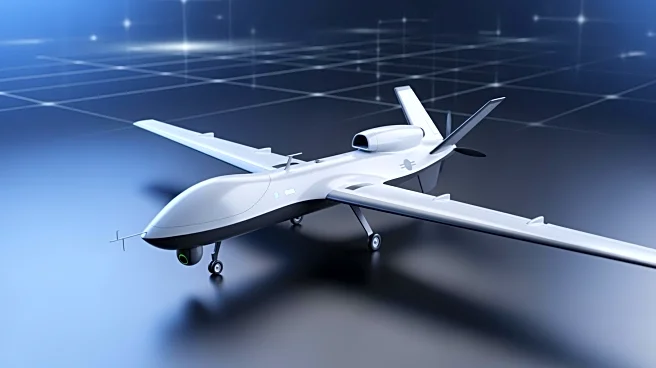What's Happening?
The Indian Army has entered into two contracts with Mumbai-based unmanned aerial vehicle (UAV) manufacturer ideaForge to procure UAVs aimed at enhancing intelligence, surveillance, and reconnaissance (ISR)
capabilities. The contracts involve the supply of the Zolt UAV, valued at INR750 million (USD8.5 million), and the Switch V2 UAV, valued at INR300 million. These vertical take-off and landing (VTOL) UAVs were introduced at the Aero India 2025 show in Bangalore. The Zolt UAV, selected after extensive field trials in electronic warfare environments, offers a range of up to 50 km, a payload capacity of 10 kg, and an endurance of 180 minutes. It can operate in GPS-denied environments and is equipped with various intelligence and tactical resupply payloads.
Why It's Important?
The procurement of these UAVs by the Indian Army signifies a strategic enhancement in its ISR capabilities, crucial for national security and defense operations. The ability to operate in electronic warfare environments and GPS-denied areas provides the Indian Army with advanced operational flexibility and resilience. This move could potentially shift the balance in regional defense dynamics, offering India a technological edge in surveillance and reconnaissance. The contracts also highlight the growing importance of domestic manufacturing in defense technology, supporting local industry and innovation.
What's Next?
ideaForge plans to complete the delivery of the Zolt UAVs within a year and the Switch V2 UAVs within six months. The successful deployment and integration of these UAVs into the Indian Army's operations could lead to further contracts and collaborations between the military and domestic UAV manufacturers. Additionally, the enhanced ISR capabilities may prompt neighboring countries to reassess their defense strategies and technological investments.
Beyond the Headlines
The procurement of domestically manufactured UAVs underscores India's commitment to self-reliance in defense technology, aligning with the government's 'Make in India' initiative. This development may encourage other domestic companies to invest in defense technology, fostering innovation and potentially leading to export opportunities. The focus on electronic warfare capabilities also reflects the evolving nature of modern warfare, where information and intelligence play pivotal roles.











